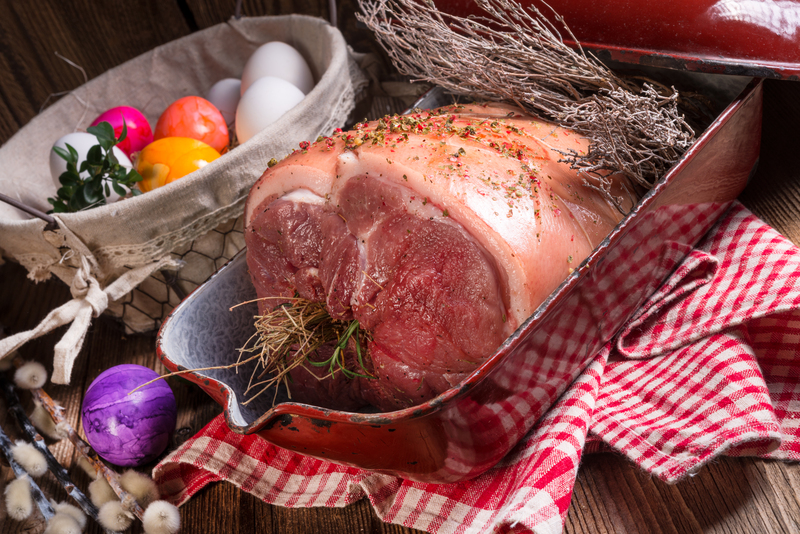Exquisite Shine: Pro Jewellery Cleaning Strategies
Posted on 24/06/2025
Exquisite Shine: Pro Jewellery Cleaning Strategies
Jewellery--be it a sparkling diamond ring, a family heirloom necklace, or a cherished silver bracelet--deserves to shine bright for every occasion. But daily wear, exposure to the environment, and time itself can dull even the most dazzling gemstones and precious metals. Achieving that coveted exquisite shine isn't reserved for jewellers alone! With professional jewellery cleaning strategies, you can restore your beloved pieces' brilliance and protect their beauty for years to come.

Understanding Jewellery Cleaning: Why It Matters
Regularly cleaning your jewellery is about more than just appearance. Dirt, oils, lotions, and even sweat can accumulate on rings and pendants, leading to tarnish, grime buildup, and a loss of sparkle. For pieces set with diamonds or other gemstones, residue can dull the stone's natural luster. Worse, neglecting proper cleaning might also result in permanent damage, particularly to softer stones and antique settings.
- Maintains beauty--retaining that original shine and glamour.
- Preserves value--especially important for expensive or sentimental pieces.
- Prevents damage--removal of substances that might weaken settings or stones.
- Ensures hygiene--jewellery can harbor bacteria, leading to skin irritation or infections.
Pro Jewellery Cleaning Strategies: The Basics
Before delving into advanced cleaning tactics, it's crucial to understand which materials you're working with. Different metals and stones demand different levels of care. Let's explore how professionals think about the process:
1. Know Your Jewellery
- Gold & Platinum: These metals are generally sturdy, but gold (especially high karat) is soft and scratches easily.
- Silver: Prone to tarnish but responds well to specific polishes and cleaners.
- Gemstones: Diamonds are tough, but softer stones like opal or pearls require special, gentle cleaning.
2. Assess the Condition
- Is the piece fragile or loose-set?
- Does it have visible tarnish or only slight dulling?
- Are there intricate details or filigrees that can trap dirt?
3. Gather the Right Supplies
- Microfiber or lint-free cloths
- Soft-bristled toothbrushes
- Jewellery cleaning solution (safe for the piece)
- Mild dish soap
- Warm water bowls
- Non-abrasive polishing cloths
Pro Tip: Avoid bleach, harsh detergents, or stiff brushes--these can scratch metals and stones, ruining the exquisite finish you're after!
Professional Jewellery Cleaning at Home: A Step-by-Step Guide
Step 1: Soaking
Fill a clean bowl with lukewarm water and add a few drops of mild dish soap. Let your jewellery soak for about 15-20 minutes. This helps loosen stubborn dirt and body oils, especially from under prongs or settings.
Step 2: Scrubbing Gently
After soaking, use a soft-bristled toothbrush (baby toothbrushes work great!) to gently brush away grime from the metal and stones. Pay special attention to:
- Areas beneath settings
- Crevices and clasps
- Filigree or intricate designs
Always brush lightly--excess pressure can loosen stones or damage delicate areas.
Step 3: Rinsing and Drying
Rinse the piece in a separate bowl of clean, lukewarm water (not over a sink to avoid drops down the drain!). Pat dry with a soft, lint-free cloth. For chains, gently roll them in the cloth instead of rubbing to avoid kinks.
Step 4: Buffing for the Final Shine
Use a dedicated non-abrasive jewellery polishing cloth to gently buff the piece. This restores metal shine without scratching. For extra sparkle, try these professional hacks:
- Buff in tiny, circular motions
- Avoid using tissue or paper towels--they can leave scratches or lint
Advanced Pro Techniques for an Exquisite Jewellery Shine
If your pieces need a little more TLC, here's how the professionals add that exquisite shine:
1. Professional Jewellery Cleaning Machines
- Ultrasonic Cleaners: These devices use high-frequency sound waves to agitate a gentle cleaning solution, dislodging even microscopic particles from settings and tiny gaps. Suitable for most diamonds and gold--but avoid pearls, opals, and soft stones!
- Steam Cleaners: Use concentrated steam to remove dirt and sterilize. Ideal for hard stones and metals only.
2. Specialty Cleaning Solutions
- Silver dip for stubborn tarnish (but never on gemstones or antiqued/oxidized silver).
- Ammonia-based solutions sparingly for diamonds or sapphires (always diluted).
- Never use harsh chemicals on costume jewellery, pearls, or porous stones.
3. Polishing and Buffing Compounds
Professional jewellers often use specialized compounds and motorized buffing machines for maximum shine. At home, use only compounds that are labelled safe for your metal and follow the instructions carefully.
Tailored Jewellery Cleaning: Strategies for Specific Types
Each piece may require a slightly different approach depending on its material and design. Here are expert cleaning tactics for the most common types:
Diamond Jewellery
- Safe for ultrasonic or steam cleaners (if unset stones are secure).
- Use ammonia-based water solution (6:1 water to ammonia) for a deep clean.
- Regular gentle brushing and buffing for maintenance.
Gold and Platinum
- Mild dish soap baths followed by gentle buffing.
- Avoid chlorine exposure--it can weaken gold's structure.
- Use a dedicated gold polishing cloth.
Silver Jewellery
- Use a quality silver polish or anti-tarnish cleaning cloths.
- For light tarnish, a baking soda paste (three parts baking soda to one part water) can work wonders--apply gently, rinse thoroughly.
- Store in anti-tarnish bags for added protection.
Pearls, Opals & Soft Stones
- Never immerse in water--use a damp cloth to wipe gently.
- Never use abrasive or chemical cleaners.
- Store separately to avoid scratches.
- Put pearls on after makeup, perfume, and hairspray (these dull luster).
Costume Jewellery & Fashion Pieces
- Wipe with a soft, damp cloth--avoid soaking (glue can loosen).
- Use a dry toothbrush for textured or detailed areas.
- Keep away from perfumes, hairsprays, and chlorine.
Jewellery Cleaning Myths Debunked
When it comes to cleaning your jewellery at home, you may encounter plenty of well-meaning but incorrect advice. Let's set the record straight on what truly maintains that professional-level shine:
-
Myth: Toothpaste is great for cleaning jewellery.
Truth: Toothpaste can be abrasive, scratching metals and dulling gemstones! -
Myth: All jewellery can handle ultrasonic cleaning.
Truth: Many gems and vintage pieces are too fragile for ultrasonic machines. -
Myth: Household cleaners are safe for metals.
Truth: Bleach, ammonia, and acids can cause serious, often irreversible damage.
Professional Maintenance Tips: Keep Your Jewellery Dazzling
- Inspect regularly: Check clasps, prongs, and stone settings for signs of wear or looseness.
- Store separately: Avoid scratches by keeping pieces in individual pouches or compartments.
- Limit exposure: Remove jewellery before swimming, cleaning, applying lotions, or doing heavy work.
- Annual checkup: Bring your most prized pieces to a professional jeweller for periodic inspection and a thorough, safe clean.
When to Seek Professional Jewellery Cleaning Services
Some pieces are best left to the experts. Seek a professional cleaning if:
- The item has delicate or antique settings.
- You notice loose stones, heavy tarnish, or discolouration.
- The piece includes mixed materials (pearls with gold, for example).
- You want deep polishing (such as removing small scratches or restoring intricate filigree).
Top Mistakes to Avoid for a Brilliant Finish
For exquisite jewellery cleaning results, avoid these common mistakes:
- Using abrasive materials--even paper towels can scratch surfaces.
- Soaking porous stones like emeralds, turquoise, or pearls.
- Cleaning over open drains--jewellery can be lost in seconds!
- Neglecting routine cleaning--grime buildup is harder to remove over time.

Frequently Asked Questions: Exquisite Jewellery Care
How often should I clean my jewellery at home?
For daily-wear items like engagement rings or wedding bands, a gentle cleaning every 1-2 weeks can keep them sparkling. For pieces worn infrequently, monthly cleaning is usually sufficient.
Is ultrasonic cleaning safe for all jewellery?
Ultrasonic jewellery cleaners are safe for most diamonds, sapphires, and gold or platinum, as long as stones are set securely. Avoid ultrasonic cleaning for pearls, opals, emeralds, antique or glued pieces, and jewellery with loose stones.
Can I use vinegar or baking soda for all jewellery?
Baking soda is generally safe for silver, but not recommended for gold or soft/porous stones. Vinegar should never be used on gemstones or gold--it can cause etching or dullness.
Conclusion: Achieve a Lasting, Exquisite Shine
Reviving the exquisite shine of your jewellery doesn't require professional equipment--just the right care, attention to detail, and a knowledge of what makes each piece unique. Always approach cleaning with patience and gentleness, check stone settings often, and store your treasures properly. For difficult cases or sentimental valuables, consult a professional jeweller for a shine that rivals the day it was made.
With these pro jewellery cleaning strategies, you'll keep your collection dazzling and your memories sparkling for generations to come!



